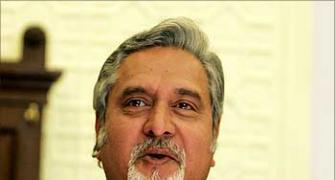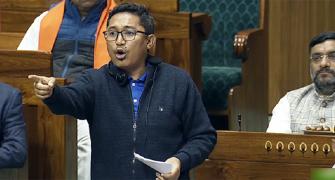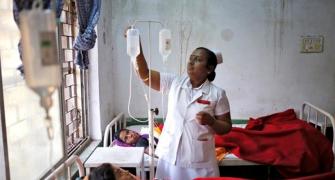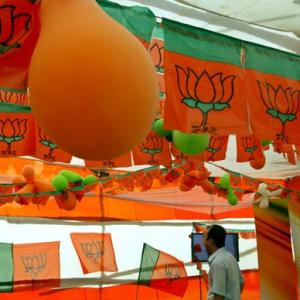 Ranging from improved health care facilities to low cost treatment, the success of the health sector has been primarily driven by private enterprise.
Ranging from improved health care facilities to low cost treatment, the success of the health sector has been primarily driven by private enterprise. There has been a huge improvement in the R&D facilities in the nation. The pharmaceutical segment has also registered phenomenal upward movement. However all this has not happened because of the government but rather despite the government.
This year all the key players in the health sector have pinned their hopes on governmental policies in the Union Budget to provide them with support so that they can become globally competitive.
The primary investment in health sector is in the form of private health care units which have acquired world class facilities and are being sought after even by people from the developed world due to their lower costs of treatment.
However in order to provide leading technology substantial portions of the equipment have to be imported. Currently there are no provisions for exemption on import duty for medical equipment which puts an additional burden on the importers.
Ultimately, this financial burden is passed on to the patients through higher diagnosis and treatment costs.
In the last Budget, the finance minister had proposed a 5 % cut in the import duties for chemicals, drugs and medical kits being imported by hospitals with a capacity of more than 25 beds. However this provision was subsequently rolled back and never implemented.
Even the service tax being levied on such health care centers has not been withdrawn so far. All these commitments lead to medical inflation which raises the basic cost of treatment. Thus state of the art treatment still remains out of reach for the common citizen.
Most private health care chains are keen on expanding to rural India where the real need for better health care actually lies. These chains expect that the Budget of 2012 will have certain provisions for providing incentives, subsidies and tax exemptions for units being set up in the rural sector.
Such a step will not only encourage the private players in the health care sector but will also go a long way in making available better health security for the rural population. So far all medical facilities in the rural sector have been from the governmental agencies which have been dismal in their condition as well as performance.
Promoting private players will definitely be a great idea to offset burden on the public exchequer.
Additionally, the health sector has a long standing demand for being declared an infrastructure sector to avail the exemptions and benefits being offered in the taxation policies. These demands are quite justifiable as primary health care facilities count directly to development of any region.
Better medical services will directly translate into a faster rate of development in the area as it will then be considered accessible and habitable by the rest of the nation.
Hopes for declaring health care facilities as part of infrastructure development are high from this year's Budget as the government is not under compulsions of impending elections. Being declared a part of infrastructure will also entail the health care industry to avail finance from institutions like the IIFCL (India Infrastructure Finance Company Limited).
This facility will be a major boost and accelerate the progress in this field. Access to decent health care is a fundamental right of all the citizen of this nation.
Thus the health sector players expect the government to declare health care as a 'National Priority Sector' which would create the right environment to spur growth and development.
Another key issue that the health sector expects to be resolved in this Budget is the medical reimbursement under tax rules. Currently the amount is Rs 15,000 which was fixed in 1999. However the continued and unabated inflation of the past years have made this amount unrealistic.
A more pragmatic figure of Rs 100,000 is what most people in the health care sector believe will resolve the problem. There are high expectations that the finance minister will address the problem in this year's Budget.
Health care has been one of the most neglected sectors in our country right since independence despite tall claims and promises by all political parties. The time has arrived when this sector was given its due importance and the finance minister will do well to take cognizance of the growing demand fro better and affordable health care facilities all over the nation.









